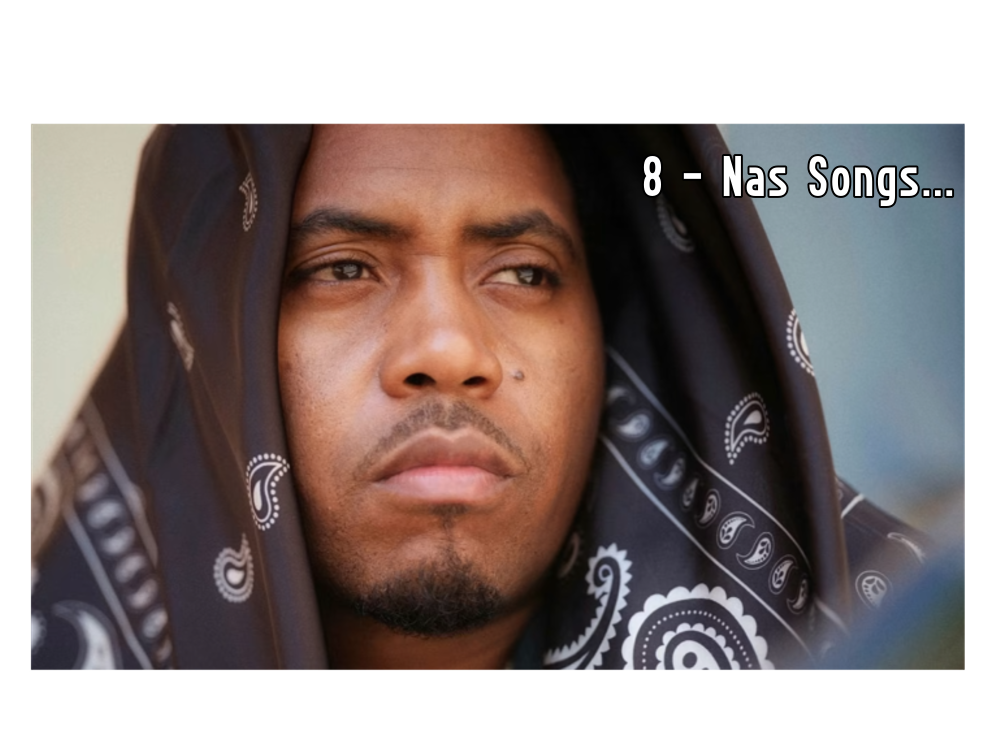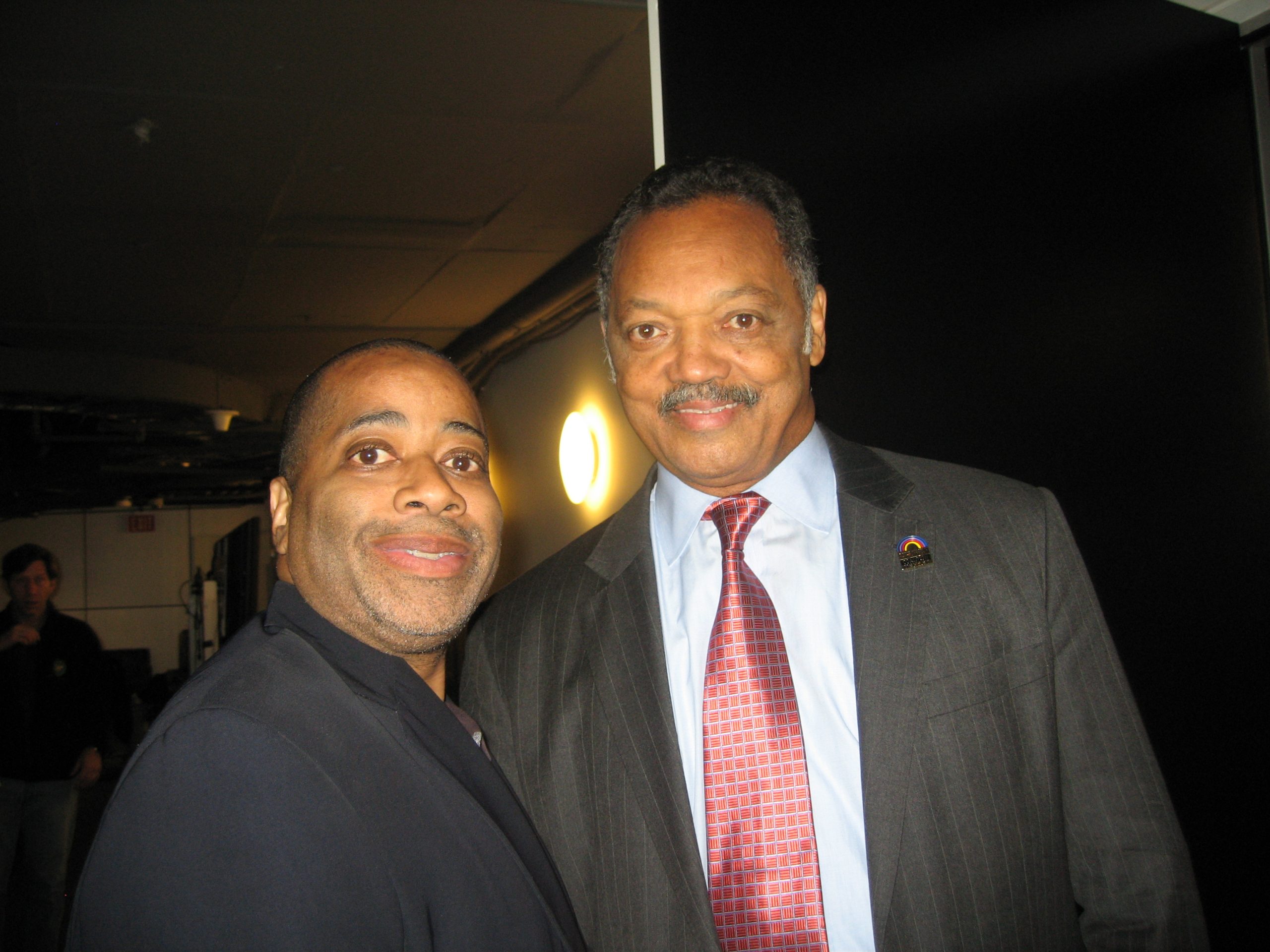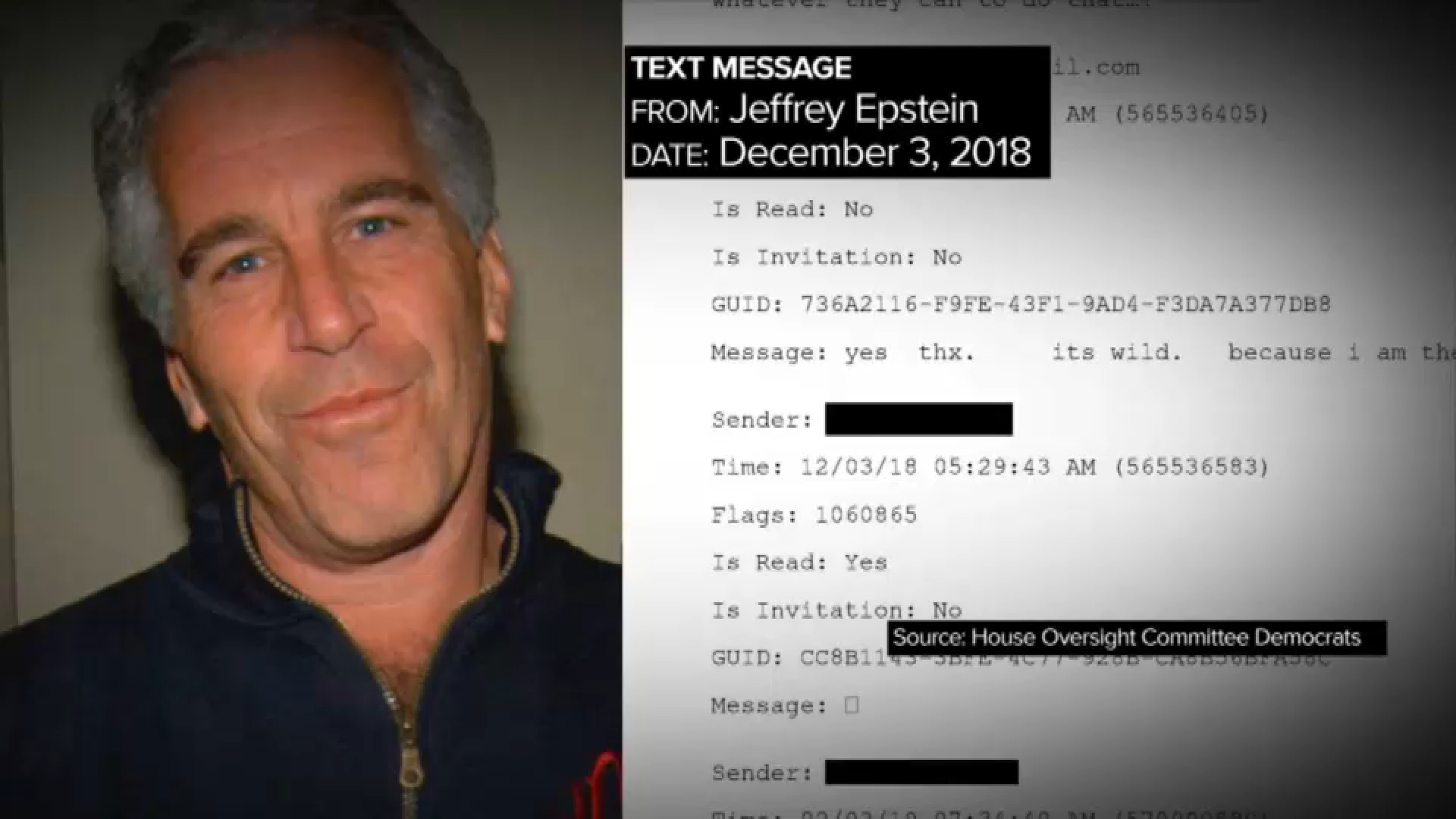(ThyBlackMan.com) There’s something timeless about a Nas record. The moment that beat drops and his voice cuts through the track, you know you’re not just listening — you’re entering a world. His flow rides like jazz, his lyrics hit like gospel, and the message? Always deeper than the surface.
Nas has always had a way of blending poetry and pain, street talk and spiritual truth, with the kind of rhythm that moves you from the inside out. From dusty boom-bap loops to lush modern production, he adapts — never chases. And that’s what makes his catalog so rich. These aren’t just songs — they’re soundtracks to growth, resistance, and reflection.
Whether you’ve followed him since Illmatic or you’re just now tuning in, these eight Nas songs capture the full range of what makes him one of the most important voices in music — period. So press play, turn the volume up, and let the rhythm speak.

1. N.Y. State of Mind
From the seminal Illmatic album, “N.Y. State of Mind” is arguably one of the most defining moments in East Coast hip-hop. Produced by DJ Premier, the beat itself is a masterpiece — raw, minimalist, yet suffocating with tension. The eerie piano loop sounds like something pulled from a noir film, while the drums knock like the heartbeat of a city that never sleeps. Before Nas utters a single word, you’re already submerged in New York’s shadows.
When Nas begins with the now-legendary line “Straight out the dungeons of rap,” there’s a chill that runs down your spine. This wasn’t just a young man rhyming — this was a 20-year-old street reporter with a gifted pen. His verse construction was surgical. Lines like “I never sleep, ’cause sleep is the cousin of death” quickly transcended hip-hop and entered the broader cultural lexicon. He painted scenes of gunplay, crooked cops, dreams deferred, and survival instincts, all in meticulous detail.
What makes “N.Y. State of Mind” so eternally gripping is that it sounds just as vital today as it did in 1994. You don’t listen to it — you experience it. It’s not about nostalgia; it’s about grit, trauma, ambition, and mental toughness. Nas gives you no hook to hold onto — just bars, straight through. It’s as unfiltered as hip-hop gets. And that decision was intentional. This wasn’t designed for commercial play — this was documentation, historical record, and psychological warfare rolled into one.
Today, you’ll still find this song referenced by scholars, cited in music documentaries, and played in writing workshops as an example of lyrical excellence. It’s perfect for headphones, late-night walks, or whenever you want to be reminded of the power of words — how they can build, destroy, reveal, and liberate. “N.Y. State of Mind” isn’t just a song — it’s a cornerstone of hip-hop literacy.
2. The World Is Yours
“The World Is Yours” is a moment of clarity on Illmatic, a song where Nas balances realism with optimism, struggle with elevation. It’s also one of Pete Rock’s most celebrated productions. The delicate jazz piano loop, lifted from Ahmad Jamal’s “I Love Music,” creates a warm, golden-hour glow that contrasts beautifully with the urgency in Nas’ delivery. This isn’t a song that yells — it speaks.
Nas’ verses are philosophical, almost spiritual. He reflects on his youth, neighborhood cycles, and the internal tug-of-war between violence and growth. Lines like “I sip the Dom P, watching Gandhi ’til I’m charged / Writing in my book of rhymes, all the words past the margin” show a rapper as interested in enlightenment as he is in survival. The chorus, repeated like a universal truth, “The world is yours,” becomes a declaration of possibility — especially for those society tends to forget.
It’s the self-awareness that sets this song apart. Nas isn’t blind to his surroundings; he’s deeply entrenched in them. But he’s also dreaming above them. He’s simultaneously in the project stairwell and at a podium delivering a graduation speech. He’s both the street kid and the scholar. And that duality speaks to generations of listeners who’ve had to navigate the same complex layers of identity.
More than two decades later, “The World Is Yours” still hits different. It plays like the soundtrack to ambition. Rappers quote it. Athletes warm up to it. Business leaders reference it in TED Talks. Play it when you’re writing your goals, building your vision board, or just needing a reminder that greatness often begins in places the world tries to ignore. Nas didn’t just give us a song — he gave us an affirmation.
3. If I Ruled the World (Imagine That) ft. Lauryn Hill
By 1996, Nas had evolved — musically, mentally, and commercially. “If I Ruled the World (Imagine That)” wasn’t just a radio-friendly anthem; it was a thesis statement. The collaboration with Lauryn Hill, one of the most powerful voices of that decade, elevated the song beyond the realm of hip-hop. It became a crossover success, but without sacrificing integrity.
The production, handled by Trackmasters, leans into a polished, R&B-tinged style. It samples Kurtis Blow’s “If I Ruled the World,” but Lauryn Hill’s hook makes it transcend — floating above the beat like a psalm. Nas doesn’t waste a second. From the jump, he imagines liberation: “I’d open every cell in Attica, send them to Africa.” It’s more than wishful thinking — it’s strategic dreaming, mapping out a better world through justice reform, economic equity, and community empowerment.
The beauty lies in Nas’ tone. He isn’t preaching, nor is he fantasizing in a vacuum. He’s contextualizing what “freedom” looks like to someone raised in Queensbridge — a place where opportunity wasn’t abundant. He weaves in allusions to history, prison industrialization, and Pan-Africanism, all while making it accessible to mainstream audiences. That’s no small feat.
This track still holds up as a blueprint for socially conscious rap that doesn’t sound dated. It’s something you can play today during protests, Black History Month lessons, or political debates. It’s also the kind of track that can introduce new listeners to Nas — a gateway to his lyrical universe. Pair it with a quiet afternoon or a drive with the windows down, and you’ll find yourself imagining that better world, too.
4. Hate Me Now ft. Puff Daddy
“Hate Me Now” is Nas at his most defiant, theatrical, and gladiatorial. Released during a time when hip-hop was embracing opulence and spectacle, Nas channeled all the hate, criticism, and expectations into a sonic roar. The dramatic production — complete with eerie choral samples and thunderous drums — feels like an opera for the streets.
The track kicks off with Diddy’s intense presence hyping Nas up, setting the stage for one of the most aggressive deliveries in Nas’ discography. Gone are the reflective, poetic musings of “The World Is Yours.” In their place is a man who’s tired of being questioned, tired of the slander, and ready to confront all doubters. “You can hate me now / But I won’t stop now” becomes a war cry for the misunderstood, the successful, and the unapologetically Black.
The music video — controversial at the time for its depiction of Nas being crucified — only intensified the song’s power. It pushed buttons, raised eyebrows, and made headlines. But the song’s core message wasn’t about shock value. It was about transformation. Nas was no longer content to be seen as just a poetic street prophet. He wanted to be recognized as an elite artist, a businessman, a king.
What makes “Hate Me Now” so enduring is that it captures a universal sentiment — the tension between self-worth and public perception. In the era of social media cancel culture and constant online judgment, the song feels eerily prescient. Everyone from athletes to tech moguls to everyday folks going through their own glow-up can relate to the idea of being hated simply for thriving.
Play this song when you need armor. Whether you’re walking into a high-pressure job interview, launching a controversial idea, or just trying to drown out the noise — “Hate Me Now” will remind you to walk tall, speak boldly, and never dim your light for anyone.
5. One Mic
“One Mic” isn’t just one of the best tracks from Stillmatic — it’s one of the most emotionally charged songs in Nas’ entire discography. It captures the internal and external chaos of a man navigating fame, faith, and fear in a world that doesn’t always value nuance. Produced by Chucky Thompson, the song relies on a simple but haunting melody, allowing Nas’ voice and message to take full control of the listener’s emotions.
The song’s brilliance lies in its slow build. It starts off hushed, like a prayer, almost as if Nas is trying to collect his thoughts. But as each verse progresses, his tone rises — not just in volume, but in intensity and urgency. By the time he’s yelling over the beat, he’s transformed from a quiet thinker to a frustrated prophet. This crescendo technique mirrors real-life moments of suppressed rage finally boiling over — it’s relatable, cathartic, and deeply human.
In the lyrics, Nas oscillates between worldly conflicts and spiritual reflections. He talks about guns, poverty, lost friends, and divine intervention — a swirl of the physical and metaphysical that few artists can balance so eloquently. Lines like “All I need is one mic… God, forgive me for my sins” show how he uses rap not just as a career but as confession, therapy, and resistance. He’s not asking for material things. He’s asking for the power to speak truth — and be heard.
Even decades later, “One Mic” feels urgent. It remains an anthem for anyone fighting to be heard — activists, introverts, survivors, thinkers. In an era of overproduction and clout-chasing, this stripped-back masterpiece reminds us that all you really need is a message and the courage to say it out loud. Play it when you’re overwhelmed by noise, and you’ll find clarity in Nas’ storm.
6. Made You Look
With “Made You Look,” Nas reminded the world that even in the shiny-suit era of early 2000s rap, pure lyricism still had a place on the main stage. Built around a hypnotic sample from the Incredible Bongo Band’s “Apache,” producer Salaam Remi created a rugged, percussion-heavy beat that feels like it was carved out of the Bronx’s concrete. It was a sonic middle finger to the industry’s growing obsession with glossy beats and simplistic hooks.
Nas matched that energy bar for bar, coming in hot with a flow that was crisp, menacing, and relentless. There’s no filler here — every line is weaponized. “They shootin’! — Aw made you look / You a slave to a page in my rhyme book” is one of the most quotable couplets in his catalog, a moment that doubles as a warning and a boast. It’s Nas reaffirming his throne in a climate that often forgets its kings.
The song wasn’t just a street anthem — it was a culture reset. “Made You Look” took over radio, mixtapes, and club speakers with no bells or whistles, just raw emceeing. Its success was a win for hip-hop traditionalists, proving that you didn’t need to chase trends to make a hit. Nas didn’t ride the wave — he was the wave.
Years later, this track still erupts crowds at concerts and gets sampled by the next generation of lyricists. It’s also a favorite in battle rap circles, often used as walkout music or inspiration for diss tracks. If “One Mic” is the thinker’s anthem, “Made You Look” is the fighter’s. Spin it when you need to remind yourself — and the world — that authenticity never goes out of style.
7. Daughters
With “Daughters,” Nas broke a longstanding hip-hop mold — showing that vulnerability isn’t weakness, especially when it comes to fatherhood. Produced by No I.D., the track steers away from heavy bass or dramatic samples and instead leans into a soulful, reflective sound. This allows Nas’ words to take center stage as he unpacks the complex, sometimes messy journey of raising a daughter in a hyper-exposed digital world.
What stands out most about the song is Nas’ transparency. He doesn’t pretend to have all the answers. He admits to missteps, second-guesses his parenting decisions, and expresses his fears about Destiny, his daughter, growing up in a society full of pressures he knows all too well. “She heard stories of her daddy thuggin’ / So if her husband is a gangster, can’t be mad — I love him,” he raps with heartbreaking self-awareness. It’s one of the most revealing verses in hip-hop, period.
Rather than simply caution his daughter, Nas cautions himself. He reflects on how his choices — in life, love, and lyrics — influence the very person he’s trying to protect. There’s no ego here. Just a father doing the best he can, trying to guide without controlling. That honesty resonated deeply with fans, especially Black fathers, who rarely see their experiences reflected in mainstream music.
Even outside the parenthood lens, “Daughters” is a song about legacy — how our pasts ripple into our futures. It’s a must-listen for anyone navigating generational change, accountability, or the challenges of evolving in public. If you ever needed proof that rap could be vulnerable, poetic, and masculine all at once, Nas gave us that proof here. And he did it with class.
8. Ultra Black
Released at the height of the pandemic and civil unrest in 2020, “Ultra Black” arrived like a celebratory middle finger to whitewashing, erasure, and cultural dilution. The lead single from King’s Disease, produced by Hit-Boy, marries soulful samples with bold declarations. The beat has a bounce to it — warm, unfiltered, and old-school without being outdated. It sounds like a backyard cookout and a protest march rolled into one.
Nas dives in from the jump, proudly proclaiming, “We goin’ ultra Black — unapologetically Black.” It’s not just a cultural flex — it’s a political statement. Nas doesn’t tiptoe around the subject of race or identity. He uplifts Black businesses, Black aesthetics, Black struggle, and Black love, all while critiquing pop culture moments with a sharp pen. His quick jab at Doja Cat stirred controversy, but it wasn’t just about one artist — it was about the importance of accountability and authenticity in an era of performative wokeness.
What makes this track special is its joy. Even as Nas tackles serious issues, the energy never drags. There’s pride in every syllable, from his references to Dr. Dre and OJ Simpson to nods at Angela Davis and “the new Malcolm X.” He weaves past and present into one radiant tapestry, reminding us that being “Ultra Black” is not just skin deep — it’s spiritual, ancestral, and revolutionary.
“Ultra Black” became an unofficial anthem during a time when Black identity was under attack and under discussion more than ever. It’s the kind of song that plays at family reunions, empowerment panels, and graduation ceremonies alike. For an artist nearly three decades into his career, to drop something this vital — and this rooted in celebration — proves that Nas isn’t just a part of hip-hop history. He is its heartbeat.
Listening to Nas is like spinning a jazz record that knows your soul — full of changes, tension, release, and that perfect pocket between melody and truth. He’s never made music for the moment. He makes movements in musical form — the kind that echo through headphones, heartbeats, and history.
Each of these songs brings something different to the table: the hunger of youth, the clarity of fatherhood, the fire of self-defense, and the pride of Black excellence. But no matter the theme, Nas delivers with intention — his words wrapped around the beat like strings on a bassline.
These tracks aren’t just part of hip-hop’s foundation — they’re part of its evolution. So as the music fades, remember this: in a world full of noise, Nas has always been a sound worth sitting with. And his music? Still plays in perfect time.
Staff Writer; Jamar Jackson

















Leave a Reply